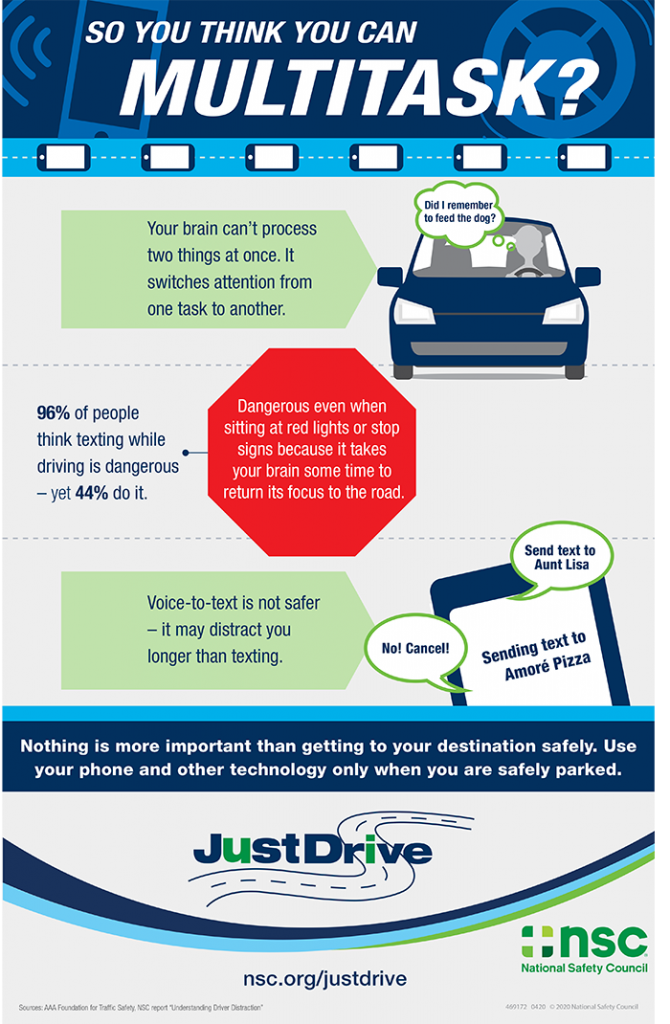When you are sitting in traffic during the morning commute, on your way to an appointment or rushing through your day, it’s tempting to use the time you are stuck in the car to multitask. Grabbing a bite to eat, checking your phone or fiddling with the radio all are all dangerous distractions that put you and others on the roads at risk.
This is why the slogan for National Distracted Driving Awareness Month is #JustDrive.
Did you know that 66 percent of drivers were distracted within six seconds of a crash? Or, that on a typical day, about 700 people are injured in distracted driving accidents?
As part of their efforts to reduce the number of distracted driving incidents, the National Safety Council, AAA, EndDD.org and other organizations are urging the public to commit to disconnecting from any electronics while driving in April.
Three types of distractions
There are three main types of driving distractions, manual, visual and cognitive.
- Manual distractions are those where you move your hands from the wheel.
- Visual distractions are those where you focus your eyes away from the road.
- A cognitive distraction is when you’re mind wanders away from the task of driving.

According to traffic experts, texting – the most dangerous driving activity – involves all three types of distraction. The National Highway Traffic Safety Administration (NHTSA) has determined that sending or reading a text message takes your eyes off the road for about 5 seconds, long enough to cover a football field while driving at 55 mph. According to the U.S. Department of Transportation (DOT), text messaging increases the risk of crash or near-crash by 23 times.
But texting is not the only culprit in distracted driving incidents. Talking on the phone, even on a hand-less device, can impair the driver the same way being intoxicated would. Cell phone users are 5.36 times more likely to get into an accident than undistracted drivers, the research shows.
To learn more about the dangers of distracted driving and how you can prevent yourself, your family or your employees from becoming distracted drivers at nsc.org/pages/ddam/
One basic and very effective strategy for not giving in to the temptation to multitask is to complete all tasks and put away all distractions before you even turn on your engine.

